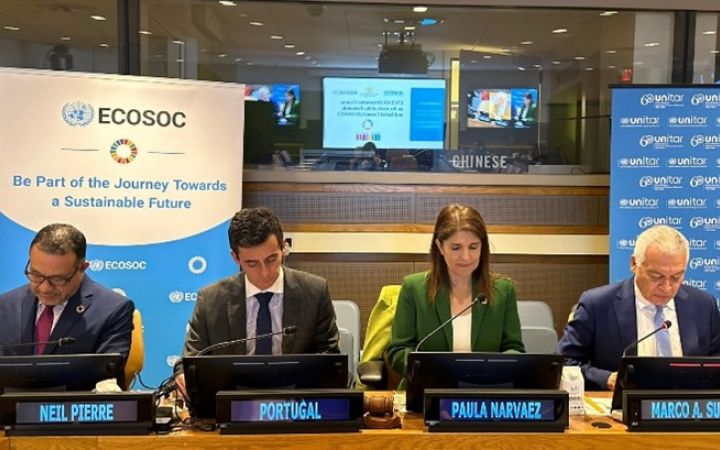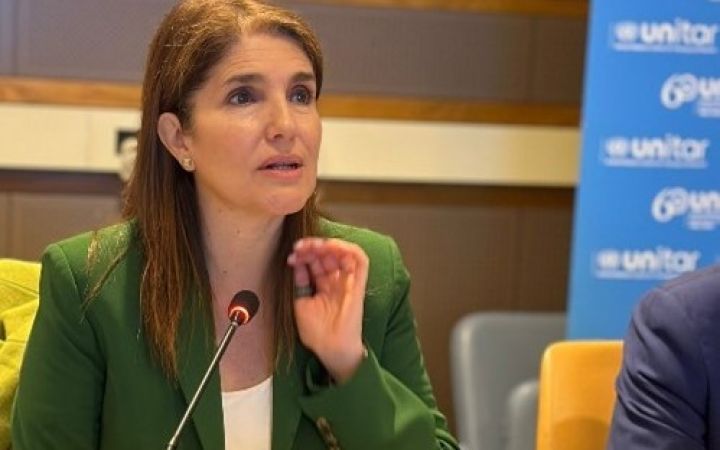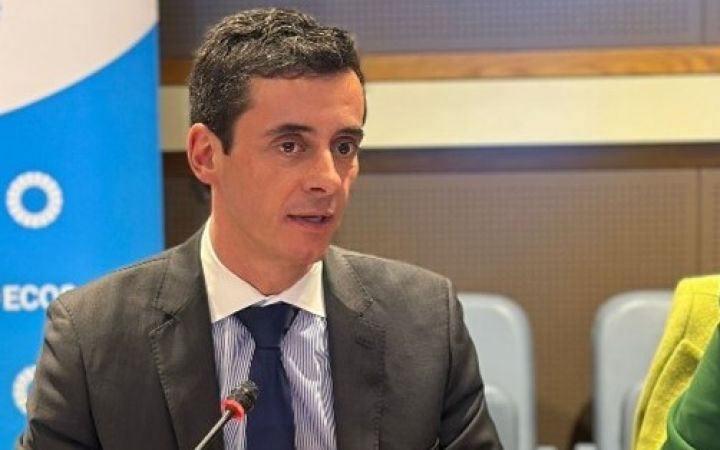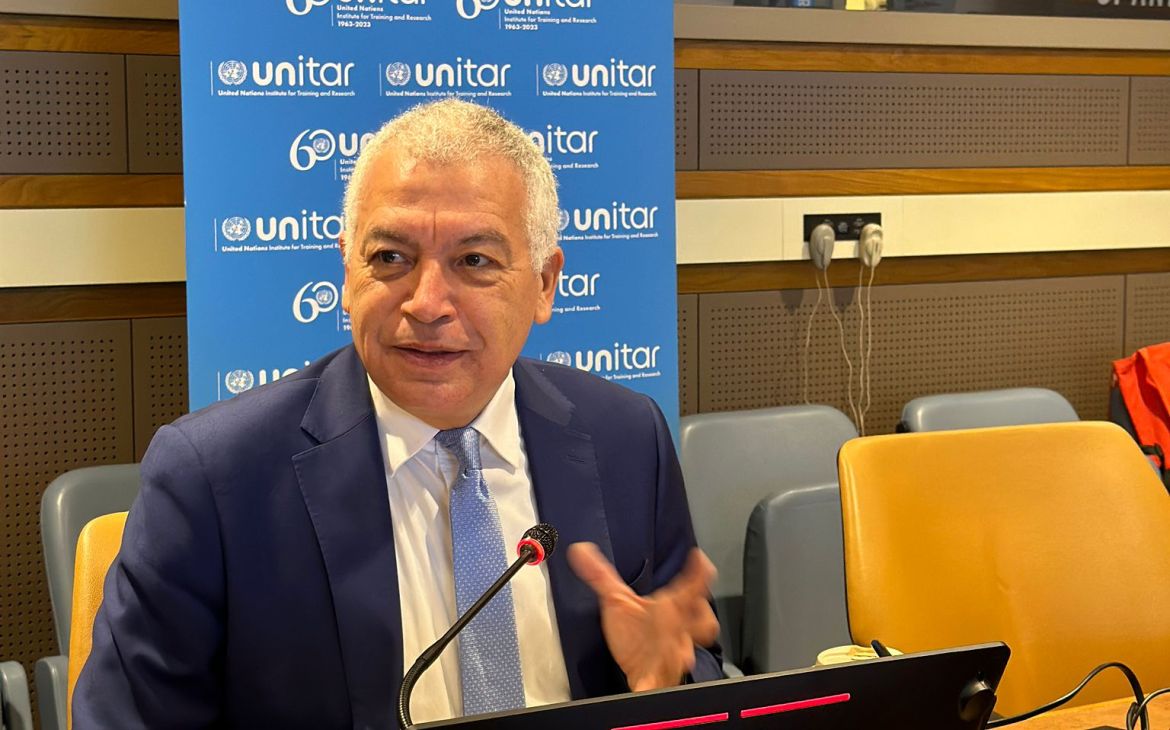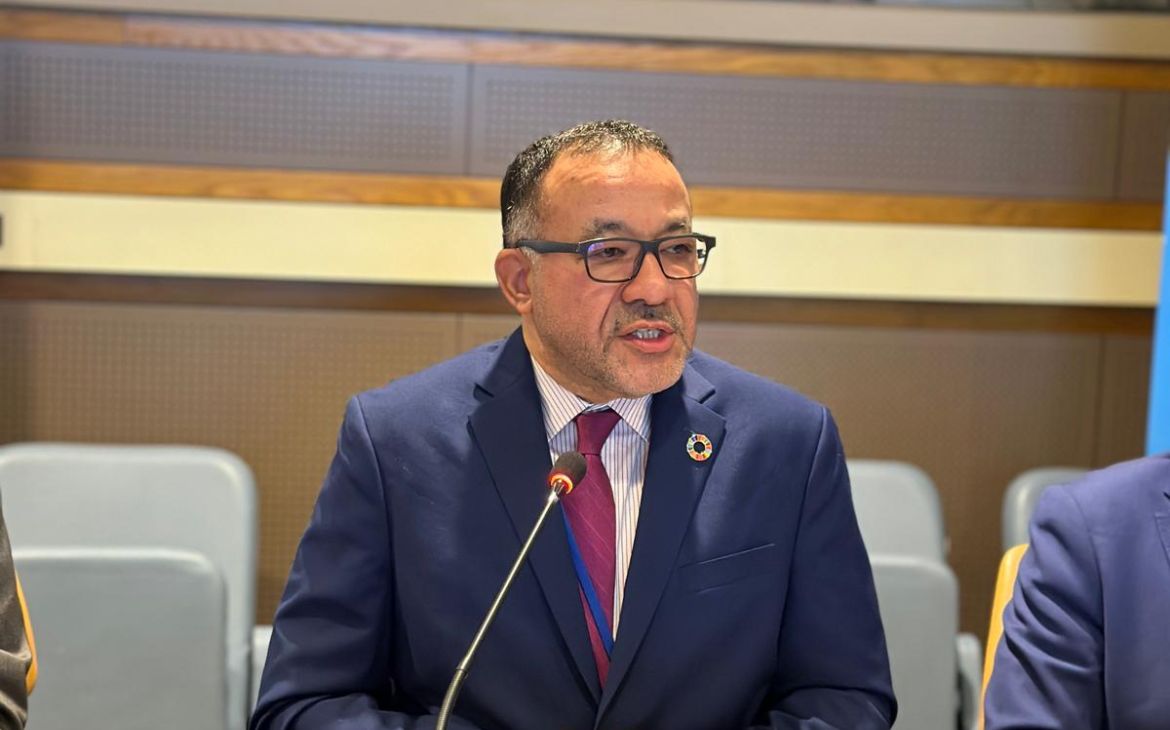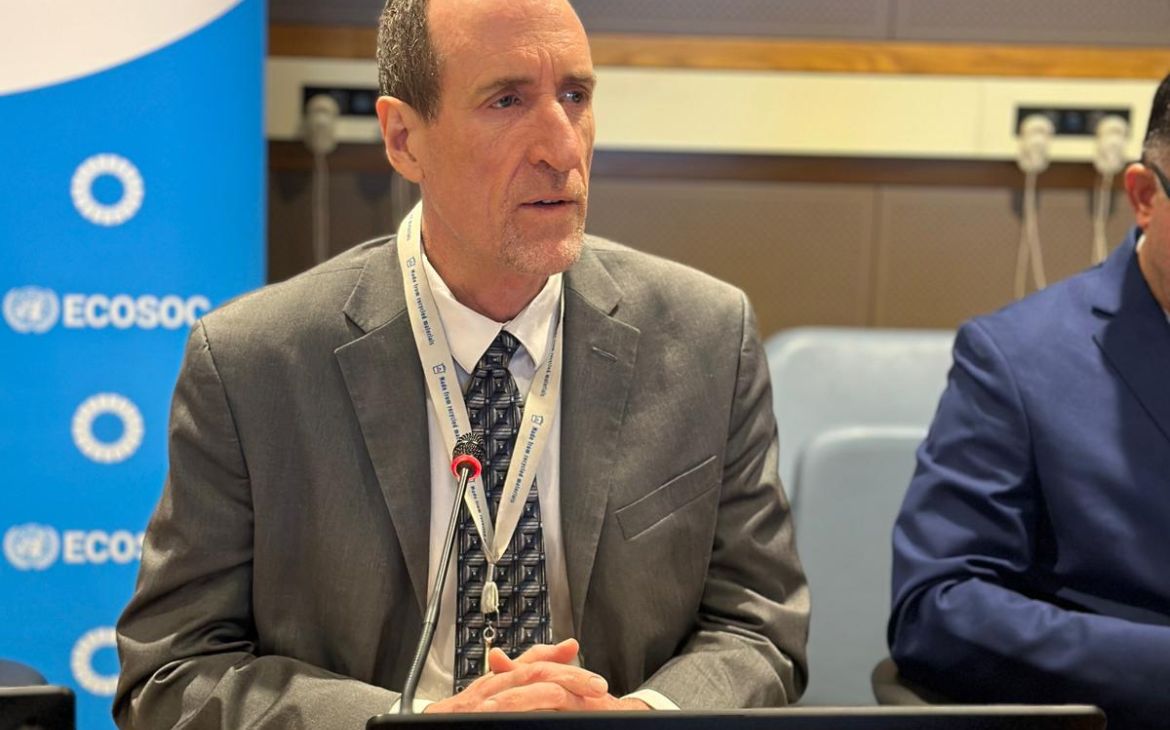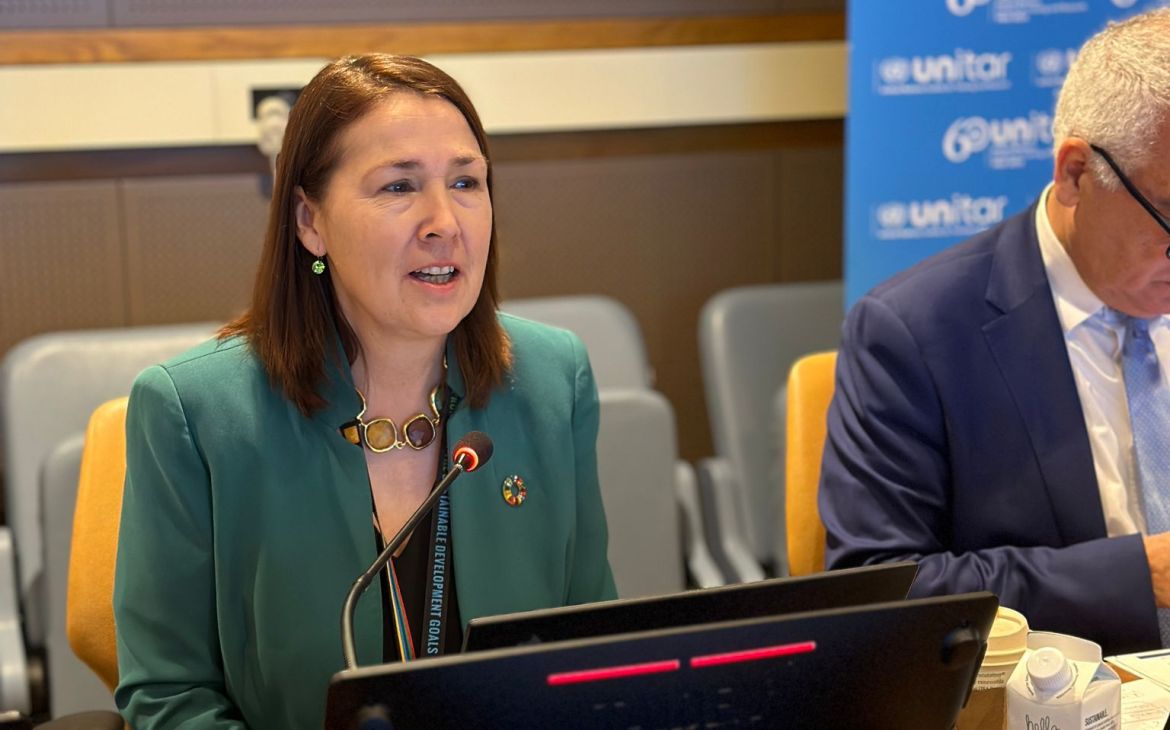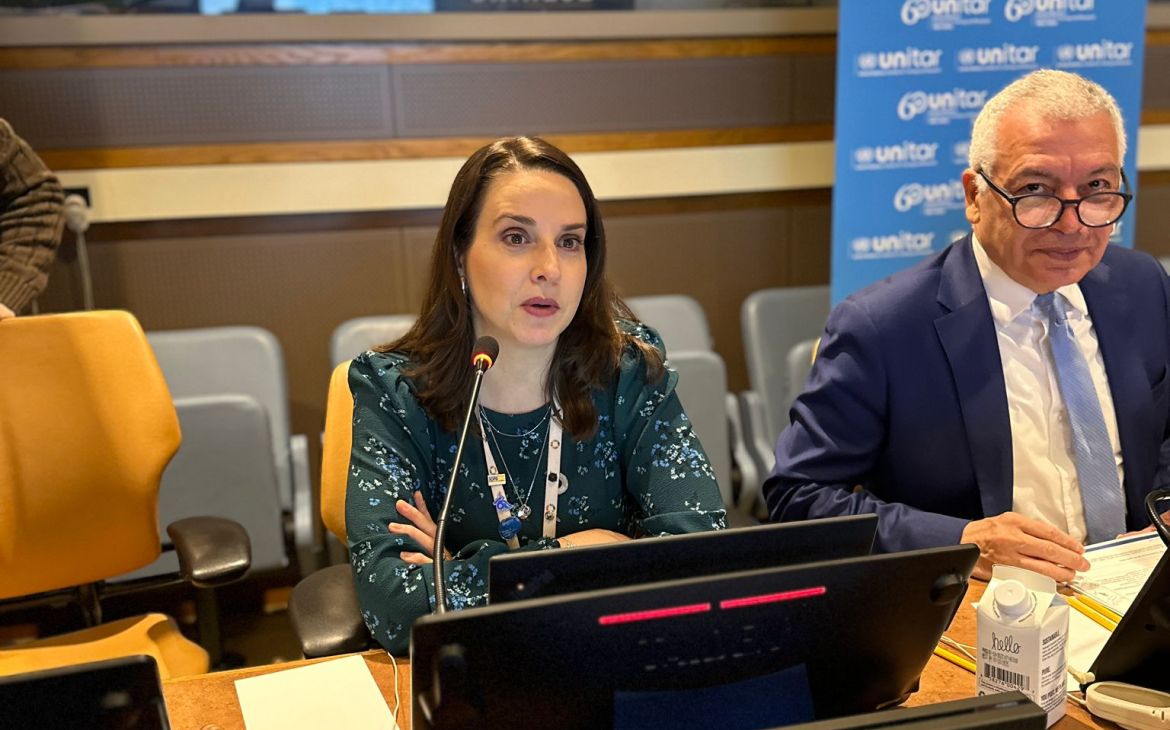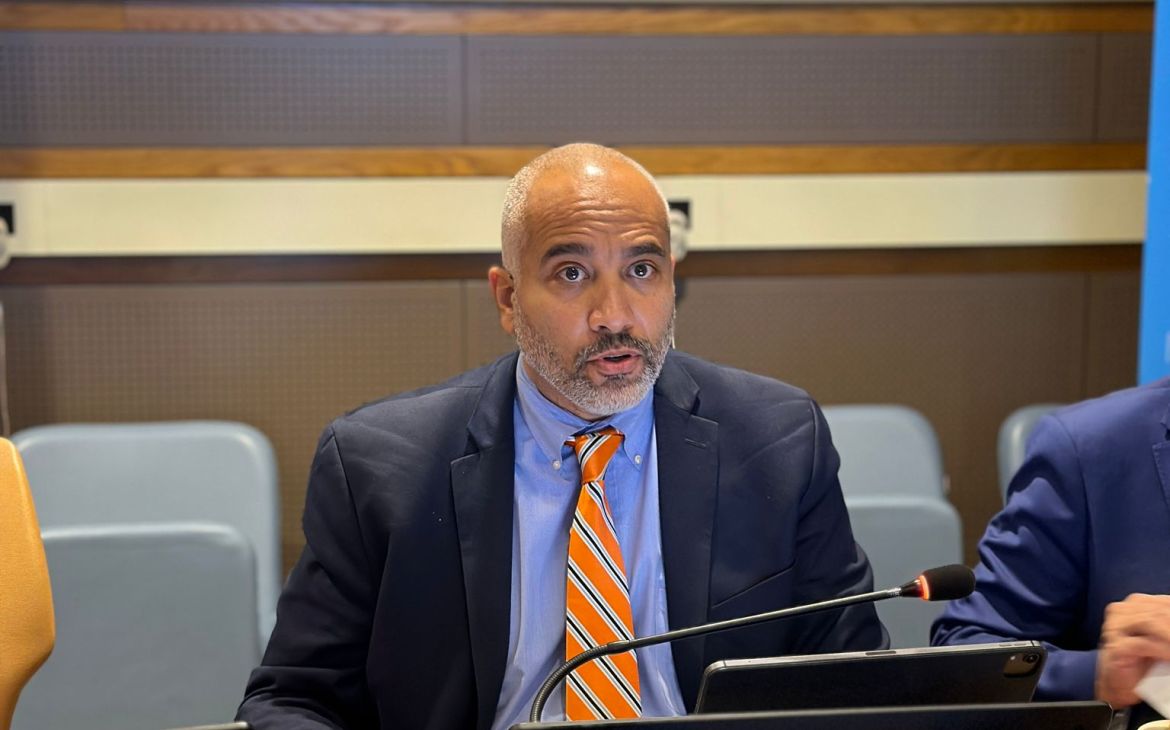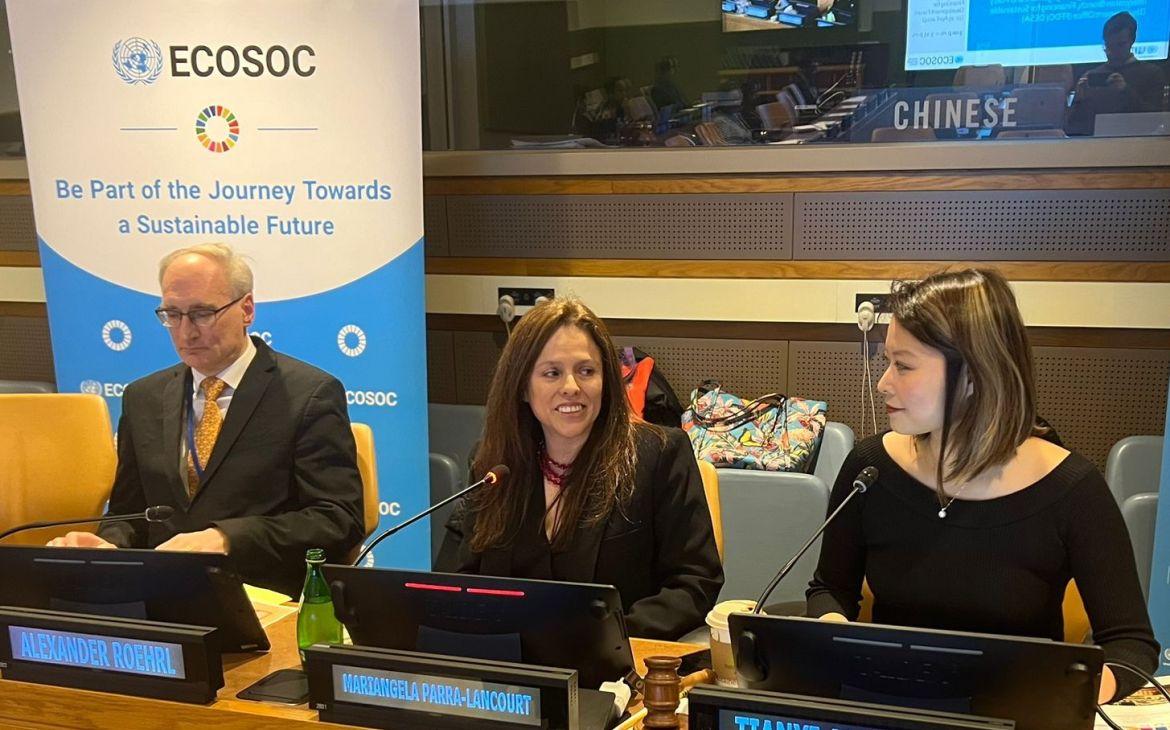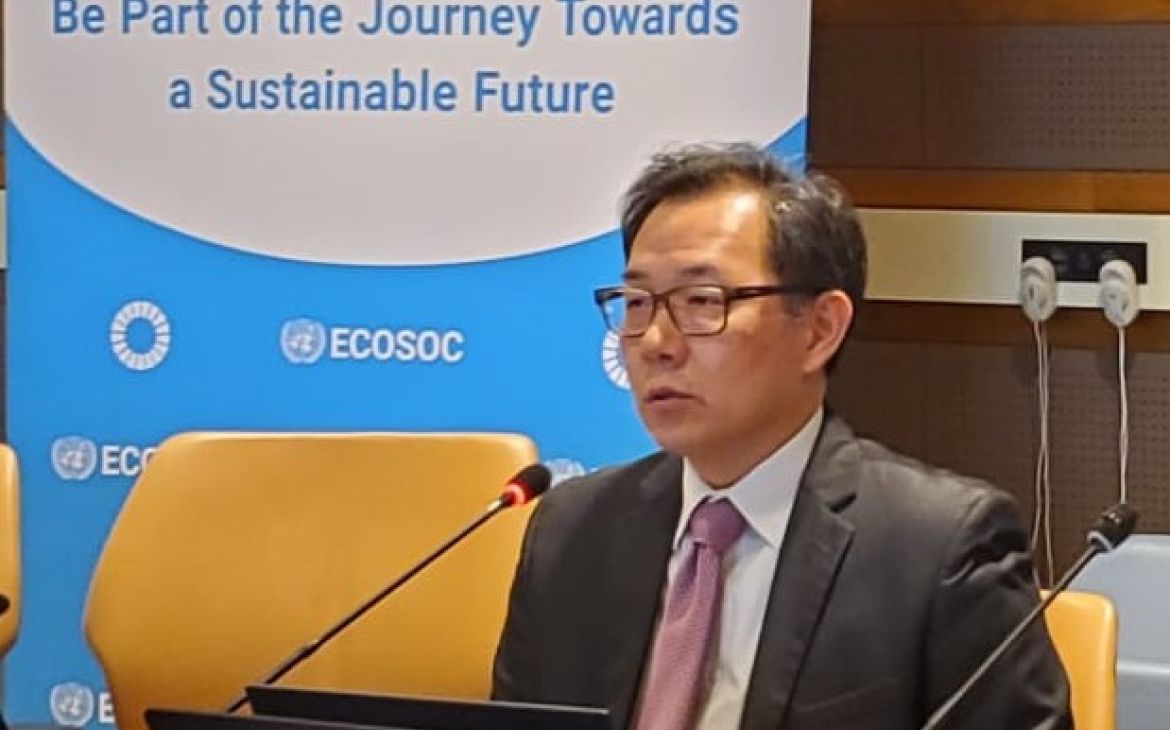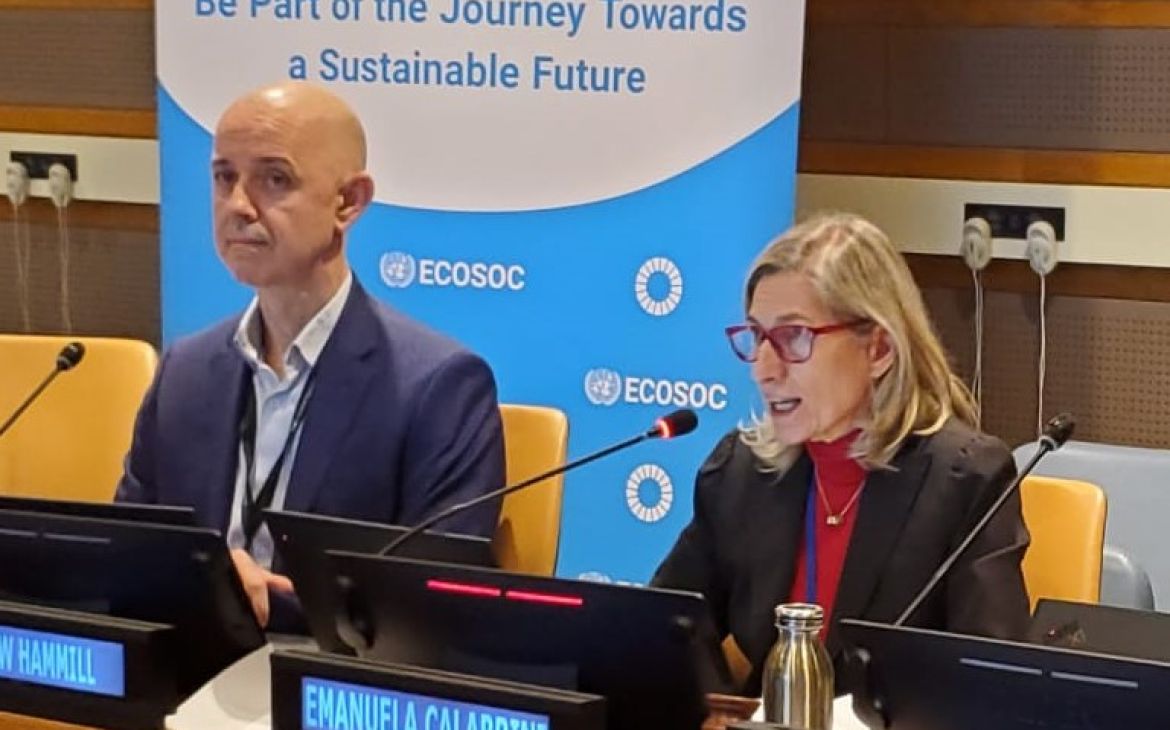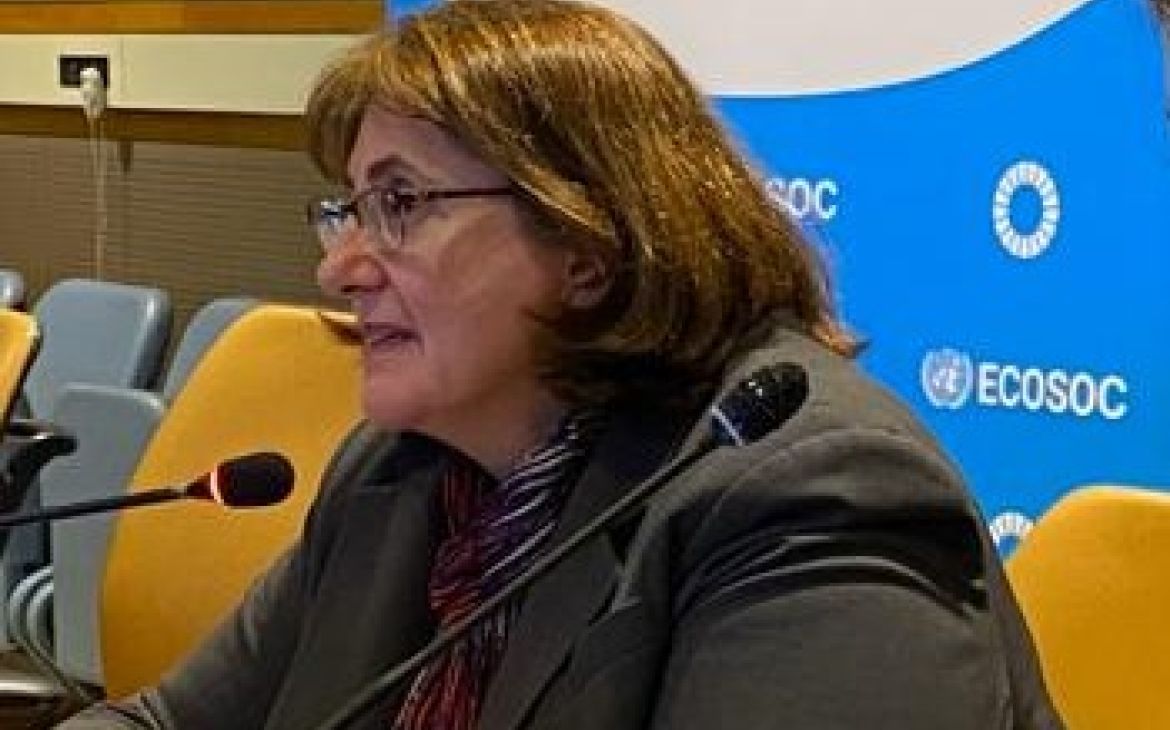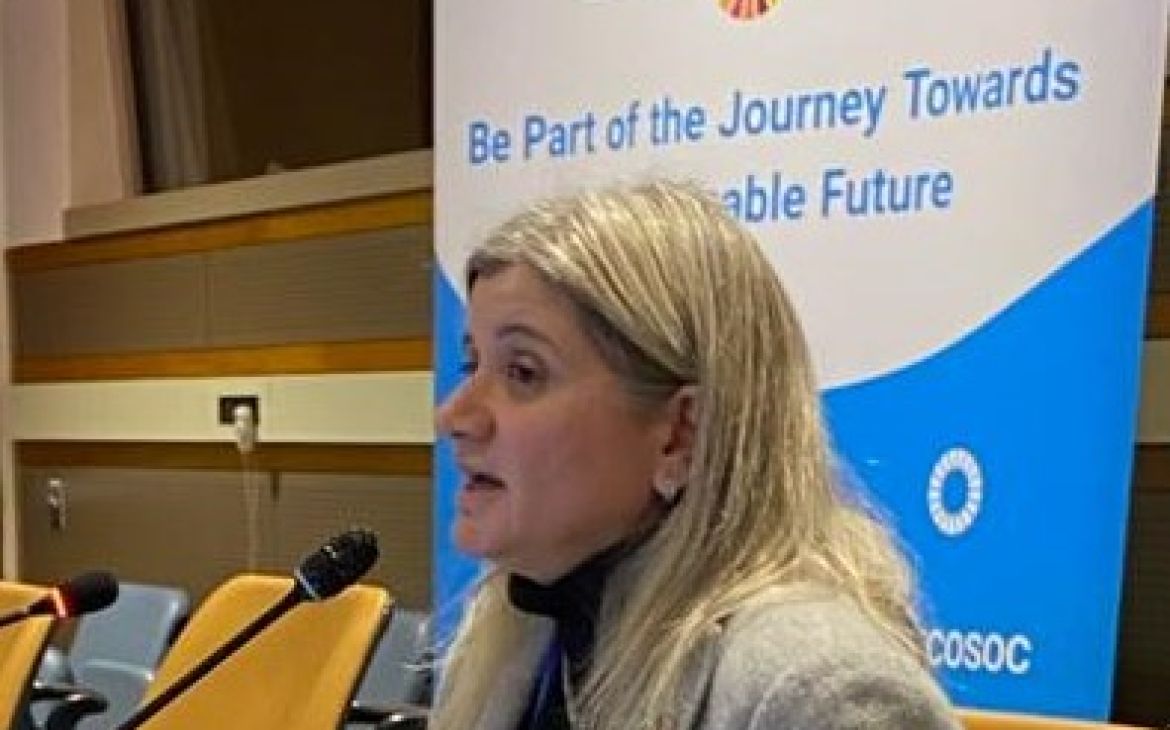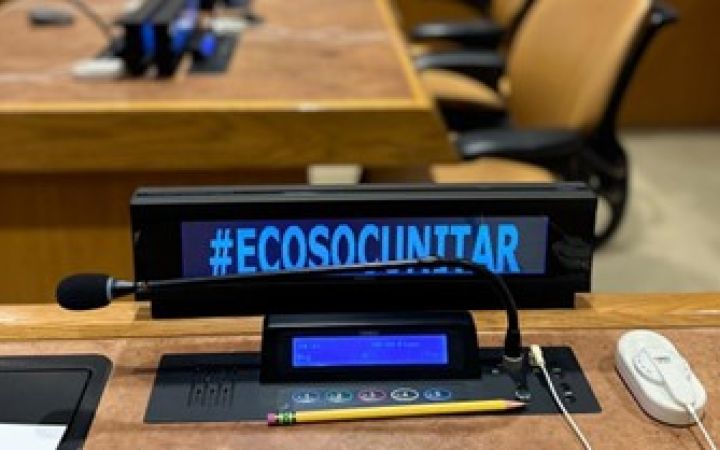11 January 2024, New York, USA - UNITAR New York office conducted an Orientation course focused on the works of the Economic and Social Council (ECOSOC). The comprehensive course comprised 10 sessions, each culminating in an open dialogue and Q&A.
Mr. Marco Suazo, Head of Office of UNITAR New York Office (NYO), commenced with an opening statement, emphasizing the importance of embracing in-person events post-Covid. He underscored the significant role of policymakers in the UN's life-saving mission. Expressing gratitude to ECOSOC for its support.
Following his remarks, H.E. Ms. Paula Narváez, Ambassador and Permanent Representative of Chile to the UN and President of the ECOSOC, reinforced the 2030 agenda and the pursuit of sustainable, renewable resources. She shared insight into the High-Level Political Forum (HLPF)’s goal of involving 24 countries for contributions to the Summit of the Future. She mentioned that the objectives of this orientation include exploring ECOSOC's effort to promote Sustainable Development Goals (SDG) guiding peace and security. H.E. Mr. Jorge Aranda, Ambassador of Portugal to the UN, has once again assured Portugal’s commitment to advancing ECOSOC and UNITAR’s mission, and reinforced the importance of eradicating poverty in times of multiple crises
Mr. Neil Pierre, Acting Director of the Office of Intergovernmental Support and Coordination on ECOSOC's functions. Mr. Neil Pierre started the first session by shedding light on the role, functions and architecture of ECOSOC, including the HLPF. The key mandates of the ECOSOC include promoting international economic and social cooperation, making recommendations on international issues, fostering sustainable development, and addressing humanitarian challenges. He also reiterated how ECOSOC fulfils mandates through mechanisms like the HLPF, functional commissions, coordination with UN agencies, partnerships, regional forums, and the Youth Forum. These ensure a comprehensive approach to addressing global economic and social challenges by engaging diverse stakeholders.
Mr. Fred Soltau, Chief of the Intergovernmental Policy and Review Branch wrapped up the first session by delving into the HLPF. He highlighted the forum's dependency on other entities and its periodic meetings under the ECOSOC council, including the SDG summit that HLPF aims to achieve, focusing on interlinkages. Key points included the role, outcome, and procedure of HLPF, along with an exploration of Voluntary National Review, guiding national reviews, and thematic reviews. The session concluded with an open dialogue and Q&A session.
Session 2 introduced the ECOSOC's working methods and decision-making procedures, with Ms Emer Herity, Chief of the ECOSOC Affair Branch, Secretary of ECOSOC and the Second Committee, leading the discussion. She comprehensively covered the functions, working methods, and decision-making processes, as well as the role of the president and vice president. Additionally, the legislative aspect of ECOSOC was explored in detail. She introduced how the ECOSOC President and Bureau play crucial roles in facilitating the council's work. The President leads meetings, represents ECOSOC externally, and ensures the smooth functioning of sessions. The Bureau, consisting of Vice Presidents and other members, assists in decision-making, prepares the agenda, and supports the President in coordinating activities. Together, they guide ECOSOC in addressing economic, social, and related challenges, fostering international cooperation and sustainable development.
Moving on to Session 3, Ms. Naiara Costa, Senior Sustainable Development Officer, Outreach and Partnerships Branch, shed light on the Coordinating Segment and the ECOSOC Partnership Forum. The objectives of the forum were outlined and emphasized the exchange of new ideas, expectations, and priorities. Reference was made to Resolution 75/290A, which sets the parameters for partnership. The upcoming 2024 ECOSOC Partnership Forum was highlighted, encouraging member states to participate and share insights. The expected outcome, a non-negotiated factual joint summary, would be followed up by the ECOSOC president on strategic recommendations. Further insights were provided by Ms. Filipa Correia, Economic affairs officer, who shared the objectives and the outcomes of coordination segments. She elaborated on the key constituents engaged in the segment and clarified how ECOSOC coordinated and guided the work of its subsidiary bodies. In addition, Ms. Correia explained the role of ECOSOC in providing guidance to funds, programs, and specialized agencies. The session concluded with a reminder of how member states can offer further guidance and enhance their engagement to effectively fulfil the mandates of the coordination segment.
Session 4 centred around the ECOSOC Youth Forum Scheduled for April 16-18, 2024. Led by Mr. Paul Simon, Program Management Officer, the discussion focused on the active engagement of Youth in the council's work. Mr. Simon addressed the outcomes of the forum and its contribution to the (HLPF), emphasizing its role as a platform for youth to contribute ideas and solutions to global problems. The 2024 ECOSOC Youth Forum was positioned as a significant contribution to the Summit of the Future. The forum's objective is to empower youth with strong ideas for the future, bringing together ministers, member state representatives, and UN agencies. Thematic plenary sessions will significantly address the Sustainable Development Goals (SDG) under review at the HLPF 2024. Mr. Simon provided an overview of the ECOSOC Youth Forum's timeline from 2012 to 2024, with a focus on the challenges, visions, and youth development agenda for 2024. The Forum serves as a platform for young people to actively participate in the decision-making process, with objectives including presenting ideas and solutions, mobilizing youth engagement in SDG and incorporating youth voices into policy recommendations.
Session 5 explored the Mobilizing Financing for the Implementation of the 2030 Agenda: Financing for Development forum scheduled for April 25-25, 2024. Led by Ms Mariangela Parra-Lancourt, chief of the Strategic Engagement and Policy Integration Branch, the discussion highlighted the crucial need to attract investments for developing countries. She also pointed out that the Financing for Development Forum aims to enhance global cooperation for financing sustainable development. Its objectives include reviewing the implementation of financing commitments, addressing challenges, and promoting international economic and financial stability. Outcomes involve policy recommendations, fostering partnerships, and mobilizing resources to achieve the Sustainable Development Goals (SDGs). The forum plays a key role in shaping financial strategies that support inclusive and sustainable development worldwide.
In his presentation in session 6, Ms Mariangela Parra-Lancourt, Chief of the Strategic Engagement and Policy Integration Branch, and Mr. Alexander Roehrl, Senior Economic Affairs Officer from the Integrated Policy Branch, highlighted the significance of the Technology Facilitation Mechanism (TFM), emphasizing its role in guiding the Sustainable Development Goals (SDGs). The TFM, vital for stakeholders, NGOs, and the private sector, fosters partnerships among all relevant entities within and outside the UN. The panellists introduced the United Nations Interagency Task Team on Science, Technology, and Innovation for the SDGs, consisting of 47 UN entities and over 100 expert staff volunteers. They emphasized how the multistakeholder nature of the Forum on Science, Technology, and Innovation (STI) contributes significantly to advancing the implementation of the 2030 Agenda. By involving governments, the private sector, civil society, and the scientific community, diverse perspectives and expertise are integrated. This collaboration fostered by the multistakeholder approach helps identify innovative solutions, share knowledge, and promote the effective use of science and technology for sustainable development. It enhances inclusivity, encourages partnerships, and accelerates progress towards achieving the Sustainable Development Goals (SDGs) by leveraging the strengths of various stakeholders in the field of science and technology.
Following this, in session 7, Mr. Wook-Jin Chang, Chief of the Non-Governmental Organizations Branch, provided insights into the NGO committee, emphasizing its diverse membership from 19 member states across regional groups. NGOs, whether international, regional, or national, can seek guidance, participate in ECOSOC meetings, submit written statements, and organize parallel events during sessions. He also explained how ECOSOC serves as a crucial platform for engaging civil society stakeholders, facilitated by its Committee on Non-Governmental Organizations (NGOs). The committee reviews NGO applications for consultative status, enabling NGOs to actively participate in ECOSOC's work. This inclusive approach allows civil society to contribute perspectives, expertise, and grassroots insights to the council's discussions. Through the committee's interactions and consultations, ECOSOC fosters a collaborative environment, harnessing the collective efforts of governmental and non-governmental entities to address global economic and social challenges.
In session 8, Ms Emmanuala Calabrini and Mr Matthew Hammil addressed the Quadrennial Policy Review (QCPR), a resolution providing strategic guidance for UN operational activities on development. They emphasized the QCPR's accountability for on-the-ground development operations, its 4-year cycle aligning agencies' efforts, and its focus on addressing global issues through collaboration and communication. They also introduced how the Quadrennial Comprehensive Policy Review (QCPR) addresses key issues related to the operational activities for the development of the United Nations system. It evaluates the content, scope, and applicability of these activities every four years. The review focuses on how UN agencies work together, their effectiveness, and their impact on development goals. It aims to enhance coordination, efficiency, and the overall contribution of the UN system to global development efforts. The QCPR sets guidelines and priorities for UN operational activities to ensure they align with current development challenges and promote sustainable outcomes.
Continuing to Session 9, Ms. Anastasia Carayanides, Chief of the International Policy Section, discussed the humanitarian challenges affecting over 300 million people globally, stressing the need for strengthened negotiations and collaboration amid increasing crises.
Lastly, in session 10, Ms.Sibel Selcuk addressed ECOSOC's relations with the Security Council, and Peacebuilding Commission, and specific considerations for the Sahel region and South Sudan, tracing these relationships back to the UN Charter's Article 65. She also discussed how ECOSOC plays a crucial role in addressing the links between peace, security, and development. The council recognizes that sustainable development is closely connected to peace and security. It addresses the needs of conflict-affected countries by facilitating tailored international engagement. ECOSOC fosters coordination among UN entities, member states, and stakeholders to provide integrated support for post-conflict reconstruction and development. The council emphasizes the importance of inclusive and participatory approaches, ensuring the voices and priorities of affected communities are heard. By promoting collaboration and tailored strategies, ECOSOC works to build stable and prosperous futures for countries recovering from conflicts. The intertwining of ECOSOC's work with the Security Council agenda was highlighted.
The series of sessions at this ECOSOC meeting provided a comprehensive overview of critical topics and initiatives shaping the global development agenda. From the intricate workings of the Technology Facilitation Mechanism (TFM) and the engagement of non-governmental organizations (NGOs) to the strategic guidance outlined in the Quadrennial Policy Review (QCPR), each session underscored the collaborative efforts required to address the multifaceted challenges posed by humanitarian crises, development goals, and the intricate interplay between science, technology, and sustainable development.
The emphasis on youth involvement in the ECOSOC Youth Forum and the mobilization of financing for the 2030 Agenda highlighted the commitment to inclusivity and financial support crucial for achieving sustainable development goals. The interconnectedness of various entities within the United Nations, as demonstrated by the active engagement between ECOSOC, the Security Council, and the Peacebuilding Commission, emphasized the need for cohesive efforts in addressing global issues.
The discussions showcased a shared commitment to leveraging technology, fostering partnerships, and ensuring accountability in the pursuit of a better future for all. As the international community grapples with humanitarian challenges and strives for sustainable development, these sessions serve as a testament to the dedication and collaboration required to overcome obstacles and build a more equitable and resilient world. The importance of strengthening negotiations, and collaboration, and upholding scientific and technological discussions was a recurring theme, underscoring the belief that collective action and coordination are key to achieving the ambitious goals set forth by the United Nations.


